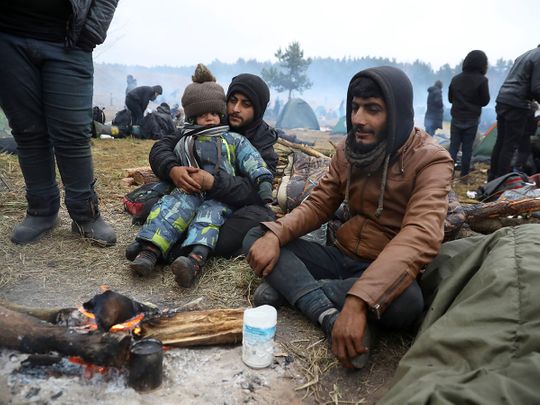
Since the migration crisis in Europe in 2015, the European Union is repeatedly breaking with the tradition of respecting international humanitarian law towards those fleeing from war and persecution.
The EU, which claims “promoting peace and security and respecting fundamental rights and freedoms” as its aims and values, forgets that at the time when migrants reach its borders. Additionally, it also enters transactional arrangements with several repressive regimes in its neighbourhood to stop the migrants on their way.
The fact is that the EU is outsourcing its ‘refugee’ responsibilities to others to save itself from an explosive situation emerging among its member-states. Undoubtedly, the migration controversy has been the primary catalyst for the rapid rise of right-wing populist parties throughout Europe.
Many far-right leaders have become popular and powerful in EU by promising to protect their nationals against the ‘invasion’ of foreigners.
A migration emergency
After the Brexit referendum in 2016, the migration issue has created a very survival crisis for the EU itself, and it refuses to come to an end. At present, the EU is struggling with a new migration emergency at its border with Belarus. President Alexander Lukashenko, has allowed thousands of migrants from the Middle East, mainly from Iraq, Syria, and Afghanistan, to use Belarussian territory to enter Poland, an EU member country.
While currently there are 3,000 to 4,000 migrants at the Poland border, but it has already pushed the EU to a major migration emergency. A right-wing ruled Poland has responded by reinforcing its border with barbed wares, deploying thousands of security forces, and firing tear gas and water cannons against hapless migrants.
Poland has been following a strict immigration policy for a long. However, the standoff at the Belarus border has taken this to a different level altogether. A small contingent of troops from the UK have joined the confrontation, and even the US and Nato have strongly condemned Belarus’s actions. Alongside Poland, two other EU member countries, Latvia, and Lithuania have refused to allow migrants entering via Belarus.
Universal humanitarian norms
The EU’s refusal to accept migrants coming through Belarus has gone against the universal humanitarian norms and even the very foundation of the European project. Thousands of desperate migrants are camping at the Belarus border in inhuman conditions. Besides adopting aggressive posturing and ignoring the right to asylum of the migrants, on the one hand, the EU has also engaged in transactional negotiations with Lukashenko.
Germany’s outgoing Chancellor Angela Merkel’s several telephone calls to Lukashenko and Russian President Vladimir Putin have diffused the crisis to a certain extent for the time being. Belarus has taken most migrants to temporary shelters, and more than 400 migrants have returned to Iraq in a flight arranged by the Iraqi government. However, at the same time, Lukashenko has forced the EU to restart the dialogue with him.
Lukashenko is not the only leader who has held negotiations with the EU using migrants as a pawn. Since March 2016, as per the EU-Turkey deal, Turkish President Recep Tayyip Erdogan has received payment of €6 billion from the EU to stop migrants crossing its borders to reach Greek islands.
Despite serious security concerns and Turkey’s hydrocarbon drilling close to Cyprus, the EU is in a bind to confront Erdogan. Instead, the EU is paying him more to avoid the repetition of its 2015 refugee crisis.
Arrival of migrants at EU doors
The EU, to stop the migrants from reaching its territory, is working overtime to make deals with its so-called “partner countries”, ignoring other aspects. Like its arrangement with Turkey, the EU has also entered into partnership and paid huge amounts of money to leaders of Libya, Morocco, Tunisia, and Bosnia and Herzegovina to strengthen their border control, so the arrival of migrants at the EU doors could be stopped.
The EU’s anti-migration policies are in response to the spectacular rise of right-wing populism in Europe. Migration-induced rising populism and ethnonationalism is a concern for individual member countries and the EU itself.
While each country becomes more xenophobic and isolated, intense Euro-sceptic sentiments are taking shape, destroying European solidarity. For more than a generation, Europe’s political elites had settled into a consensus on accepting migration. Their uniformity on these fundamental matters had kept the dissenting voices to the political fringe.
However, migration politics in recent years has significantly changed the political reality across the EU. In most member countries, right-wing populism has dominated the political space due to anti-immigration political mobilisation. Moreover, in the last few years, the far-right fringe has become increasingly mainstream.
Europe is in a serious dilemma; on the one hand, it needs immigrants for its economy, but accepting them has become politically volatile. Thus, politics has prevailed over economics. To contain right-wing populism in the EU, the political elites of the bloc forget international legal obligations. After Erdogan, Lukashenko is testing Europe’s moral values.








